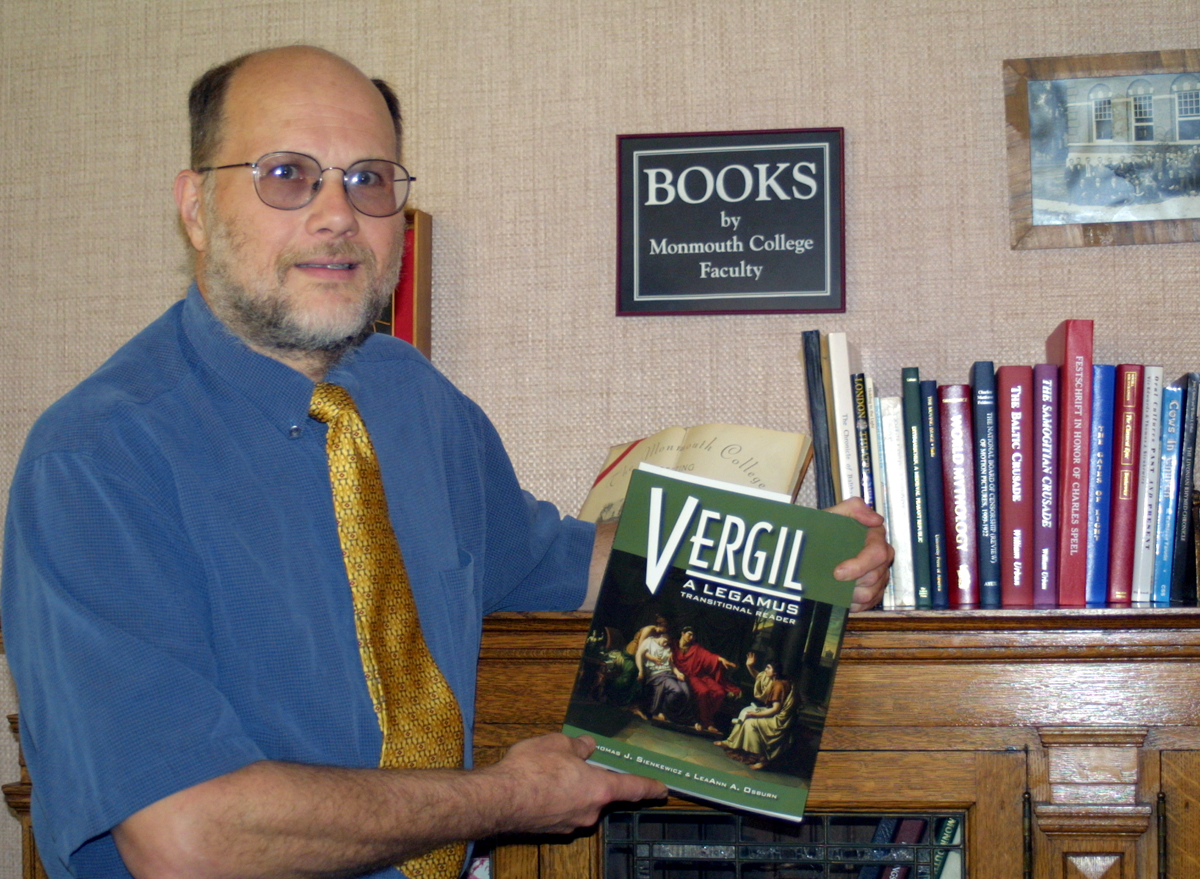 |
MC professor, graduate
collaborate
on Latin reader |
| Tom Sienkewicz holds a copy of
Vergil: A :LEGAMUS Transitional Reader. For a larger version of
the photo, click on the image. |
MONMOUTH,
Ill. — A Monmouth College professor and an alumna of the college have
joined forces to complete a text for Latin students entitled “Vergil: A
LEGAMUS Transitional Reader.”
Tom
Sienkewicz, the Capron Professor of Classics at Monmouth, and LeaAnn
Osburn, a 1972 graduate, were assigned to produce a work in the LEGAMUS
series that allows students to make a transition from elementary or
intermediate Latin into reading the authentic Latin of Vergil.
“(The
series’) purpose,” wrote the University of Massachusetts’ Kenneth F.
Kitchell Jr. in the book’s foreword, “is expressly and solely to address
those very things which make the transition to reading a given author
difficult … It is the hope of the authors and editors that this series
will bring more students into direct contact with the beauty and
inspiration reading these authors can provide.”
Published by
Bolchazy-Carducci Publishers, Inc., the 136-page paperback contains about
200 lines of selections from Vergil’s Aeneid. Passages are accompanied by
pre-reading materials, grammatical exercises, complete vocabulary, notes
designed for reading comprehension and other reading aides.
Osburn
studied under the late Bernice Fox at Monmouth and has taught Latin at
Barrington (Ill.) High School for many years. Since Sienkiewicz arrived at
Monmouth in 1984, the duo has collaborated on a number of projects.
“It is our
hope as authors that the text will enable future students of Latin to
appreciate the poetry of Vergil,” said Sienkewicz.
“Why read
Vergil?” asked reviewer Alexander G. McKay, professor emeritus of classics
at McMaster University. “Because, judging by these extracts, there are
great expectations for the reader, whether novice or lightly tuned
adventurer.
 F
F